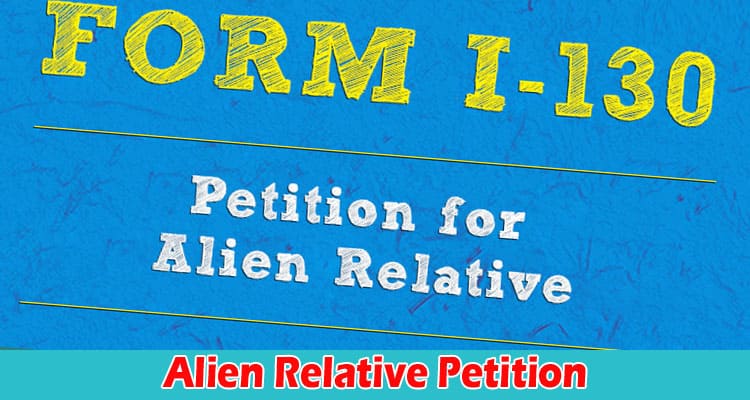Different documentation is needed for (1) an individual’s own U.S. visa application and (2) an application for a family member’s visa. It is still necessary to file a petition for family members to enter the country legally, even if the individual has completed an adjustment of status to a lawful residence on a permanent basis.
Petition for Alien Relative (Form I-131)
Form I-130, OR Petition for Alien Relative, is a type of application filed by a U.S. citizen to prove the existence of an actual familial link between the two parties. An I-130 petition OR I-130 form is what most people think of when they hear this term.
How to Fill Out an I-130 Form
Instruction 1 – Form I-130 can be submitted either online or via regular mail at this time. You must create an account with Immigration Services (USCIS) and U.S. Citizenship if you need to submit the petition electronically. This account will make it simpler to file and allow you to get updates, submit evidence, read communications, and track where your case stands.
Suppose your loved one is already in the United States and intends to file Form I-485, Application to Register Permanent Residence or Adjust Status, through regular mail. In that case, you can fill out the I-130 electronically.
Instruction 2 – You must verify your U.S. mailing address on the I-130 if you are filing it by email. The USCIS site always has a list of addresses where you can send your petition. Your current state of residence and the relative’s I-485 application status will determine where it is mailed. After being received at a Dallas lockbox in Phoenix or Chicago, the petition is forwarded to a USCIS service center.
Instruction 3 – To submit an I-130 petition from outside the United States, you can do so online or at the USCIS immigration Lockbox in Dallas. You could also be allowed to submit your application at the nearest United States Embassy, depending on your specific situation. If any part of your application is incomplete, USCIS will deny it. So beware and do your research wisely.
What Supporting Evidence Do I Need to Submit with My Form I-130 Application?
Several types of proof must be submitted alongside a Form I-130 petition to USCIS. The documentation you provide with your I-130 form must demonstrate (1) your legal right to do so and (2) the existence of a lawful link between you and the family member.
For intense, if you are applying for a green card based on your family’s U.S. citizenship, you must provide a copy of your sponsor’s birth certificate.
You’ll need to provide a suitable replacement if you need access to certain documentation. These documents, sometimes known as “secondary evidence,” are required for USCIS to decide on your I-130 application.
If you cannot show your birth certificate, you may get a statement from the relevant government body for your country of birth. If you cannot provide this information, you must obtain alternative documentation, such as a church or school record birth certificate.
USCIS also accepts written testimonies from family members who can verify your birth details. If you don’t have access to the necessary information, an immigration attorney may be able to help you find documents that can act as substitutes.
The list of the required paperwork for an I-130 petition is as follows:
- Documentation of a blood link sufficient for legal purposes
- Evidence that the connection is genuine and not fake
- Documentation demonstrating that the sponsor is a U.S. citizen or green card holder
- Documentation proving the applicant’s citizenship is required to obtain a green card.
- Documentation of all name changes that have occurred or will occur between the sponsor and the green card applicant
I-130 Application Fee
A fee is involved with filing Form I-130, even though it is a mandatory application for a relative’s lawful permanent residency. This charge is known as a “filing fee”. You can pay it through a credit card, or cheque sent to USCIS with the submission of Form G-1450. The current cost to submit a Form I-130 is $535.
Who Can’t Submit Form I-130?
The sponsor’s eligibility to file Form I-130 may be denied even if a genuine family link exists. The following situations are not eligible for an I-130 petition:
- If you and your spouse weren’t there in person for the wedding ceremony, your spouse wouldn’t take a stand for you.
- Your spouse, because you have a green card from a previous marriage to a citizen of the United States.
- If you tied the knot with your future husband when they were facing immigration court procedures, such as removal, this section applies to them.
Final Words
Your application for an I-130 visa will have a better chance of being processed quickly if you submit it as soon as possible. The more you wait, the higher the probability that anything will delay. The USCIS facility that handles your petition also determines how quickly your I-130 is processed.
Remember that USCIS may only accept your petition for a parent or other relative if they feel you have provided satisfactory proof of your eligibility. Best of luck!







